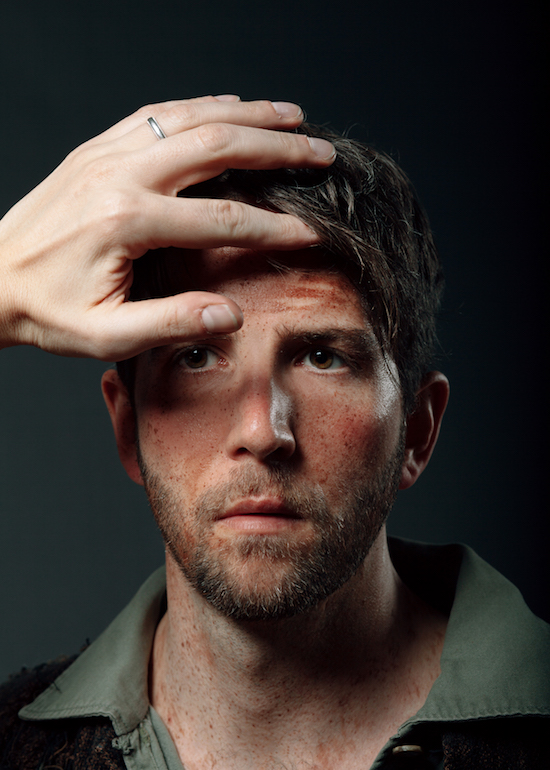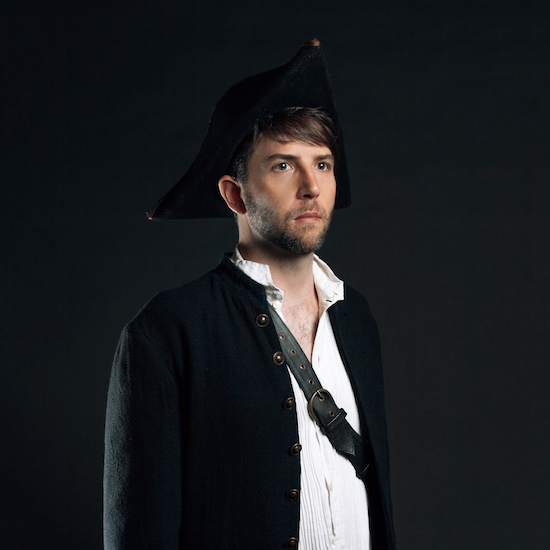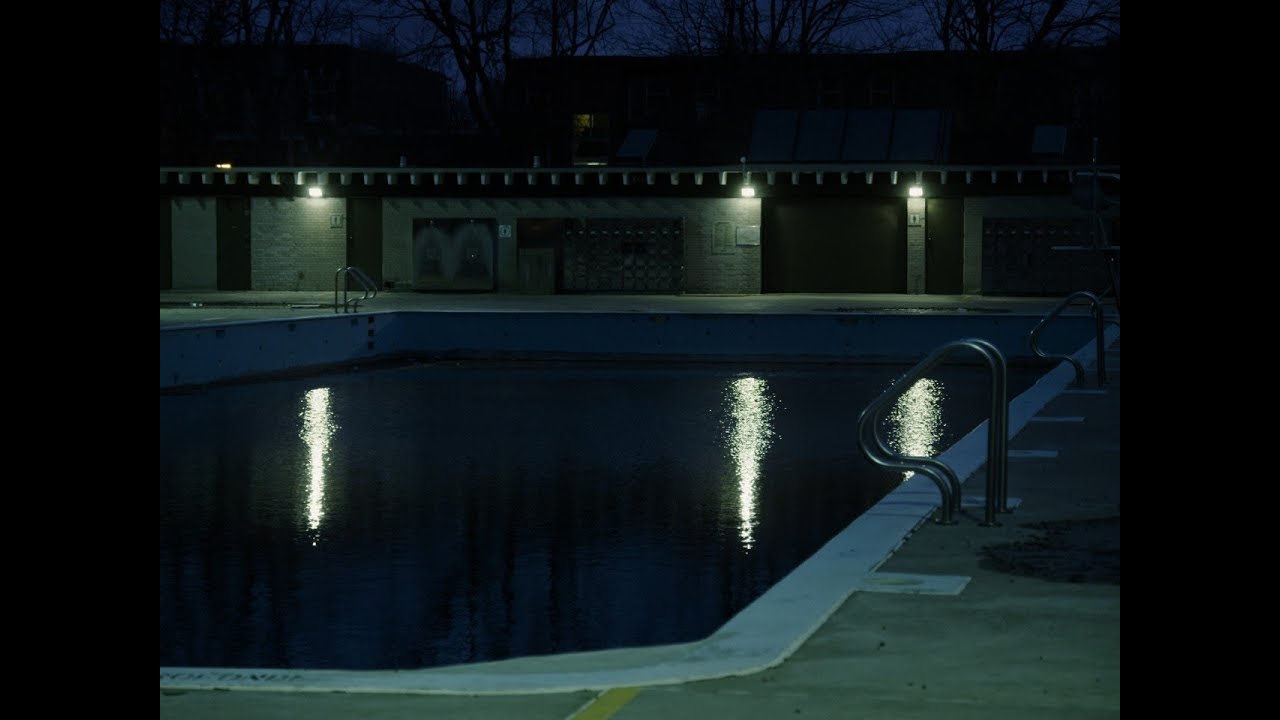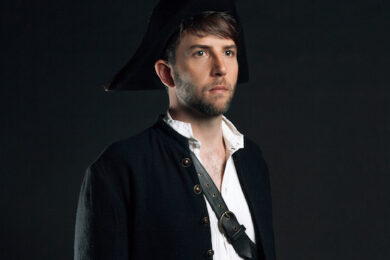“I have to write fantasy songs. If I wrote about my own life people would get bored to fucking tears,” says Owen Pallett. It’s a claim that rings true, but is also hard to believe given how devoted – bordering on rabid – their fanbase has become over the years. Their 2010 album Heartland inspired essays and graphic novel interpretations, there are numerous people who can boast Owen Pallett-themed tattoos, and there are those who genuinely claim that Pallett’s music saved their life. And, every post that Pallett has made on their active social media in the last few years has seen endless people repeatedly asking when we’re finally going to get to hear the long-awaited album, Island.
The existence of Island has been discussed by fans for years; Pallett first posted about it on Facebook in 2015, saying it had “tumbled out” of them over the course of the year. Two years later, they again posted saying they’d been sitting on the album for a year and were just finishing off the words for the emotional centrepiece. Then, again, radio silence on the Island front for another two years. “At the time I was really sure I was going to be able to turn around a record really soon, because the songs were just coming really quickly,” they reflect. “But yeah, they took a lot longer. Should’ve probably not been so loose with details on Facebook.”
The wait for Island was beginning to turn into indie music’s own Chinese Democracy – although they balk at the comparison to Axl Rose. Perhaps a better parallel would be to George R.R. Martin and the way his readers have been hanging on for years for the next instalment of his A Song Of Ice And Fire series; not just because they both work in the fantasy realm, but because of the high-profile distractions that seem to be consistently waylaying these creators.
Pallett’s reputation as an arranger-for-hire has only increased over the course of the last half decade, seeing them work across the spectrum of music with the likes of Lorde, Fucked Up, Charlotte Gainsbourg and far too many more to name – not to mention scoring indie documentaries and even contributing to the soundtrack of Tim Burton’s Dumbo. Pallett’s been working so much that at times it almost felt like they’ve been taunting their fanbase by posting about project after project, but not delivering the album they’ve been ceaselessly baying for over the last five years.
“I’ve oftentimes described working as a freelancer creative as an exercise in path of least resistance; if what you need to do is finish writing the lyrics to one song on the record but you’ve got this film score happening, then you tend to prioritise the film score,” they say. “Having a movie producer or director breathing down your neck is a really good motivator.”
We can all understand that when the call unexpectedly comes, you just have to drop what you’re doing and go out on the road with Frank Ocean. Especially since the unfinished element that held up Island’s completion wasn’t the grand, complex and stunning orchestral arrangements, but in fact the painstaking words to accompany them. At this point, Pallett has built up a mythology across their discography, which exists in a fictional 14th-century land called Spectrum and revolves around the farmer protagonist, Lewis, and his relationship with his deific creator Owen.
Given the complexities of the plot, and how much these characters mean to Pallett – being different voices of their own inner thoughts and feelings – it’s understandable that it took a lot of time and effort to get them to a point of completion. “To say it’s hard is like saying going to the gym is hard; it takes a lot of time, but it’s not not enjoyable,” they joke. “Some of the greatest thrills I have as a songwriter are completing a lyric and feeling really good about it. Then I have to hold myself back from going into every group chat that I’m part of and being like ‘Guys, look what I just wrote – it’s amazing!’”
If writing lyrics is like going to the gym, then at this point Pallett is as chiselled as Lewis, whose “body is wider and stronger than collapsing buildings.” This protagonist – who has an attractive scar on his washboard stomach – rode horses, wrestled men and killed beasts on his way through Heartland, until he eventually confronted and defeated his creator, Owen, at that album’s climax. Now, 10 years later we find Lewis washed up on Island, and the true soul searching begins.
Pallett uses their fictional setting of Spectrum to comment on real life societal issues, making passing comparison to the likes of George R.R. Martin, JK Rowling and Gene Wolfe, who do the same. “A fictional world gives you a more fertile ground for writing social satire. You can actually write more accurately about yourself and about the state of the world when you’re writing in a sci-fi or fantasy environment, because you can really get to the heart of what’s going on without being worried about exposing yourself.”
This invites listeners to draw parallels between Pallett’s life and that of their characters, but there’s still plenty to interpret, which they aren’t necessarily willing to give away: “Sometimes I watch David Lynch and I’m like, ‘It’s really cool how Lynch never explained anything’.” Nevertheless, Island touches on struggles concerning identity and reason for being, with Pallett citing Canadian author Kai Cheng Thom’s essays about the trans community as being “very helpful and useful”, while Anne Carson’s work has been a “window into revisiting a lot of the classics”.
These clues give a meta-textual background to the story of Island, where a depressed and despondent Lewis has “traded the scythe for a cig and a bottle of beer” and is praying for change; “freedom and loneliness, one and the same,” he laments in ‘Paragon Of Order’. In his darkest hour, Lewis yearns for his former God, Owen, to pull his arms around him and love him again. These songs find Pallett playing acoustic guitar and singing with gorgeous earnestness, which seems to further dissolve the barrier between the feelings of the fictional Lewis and those of the songwriter. Despite the dispirited nature of these songs, Pallett still makes sure to include some of their usual cynical humour, such as “When I wish I was never born / My mother tells me I wasn’t so much born as excreted,” from opening track ‘Transformer’; “I played the song to my mum and she reached across the table and hit me!” they laugh.
The unguarded vulnerability in their voice and delivery is striking, but it’s the acoustic instrumental approach that will surprise long-time Owen Pallett listeners most about Island. Having made their name as a virtuoso solo performer – able to loop a violin with unmatchable precision and creativity to become a one-man orchestra – on Island there isn’t a single loop to be found, and Pallett didn’t personally play violin on it at all.
“With Island, I wanted a particular orchestral sound,” they say. “I had scored the final track, ‘In Darkness’, early on, and it was going to require 56 string players – it was a big undertaking.” Having considered their options, they decided this might be the time to “go a little baller on the orchestra contracting.” They sought advice from friend and filmmaker Stephen Dunn about whether they should sink their money into it or not: “He said, ‘Well, if you’re making a movie and you’ve got the option between casting Andy Garcia or Al Pacino, you don’t go with Andy Garcia.’” Thus, Pallett ended up splashing out to hire the London Contemporary Orchestra and record at Abbey Road Studios.
It’s undoubtedly money well spent, as the orchestra plays a crucial role on Island. At first they animate the verdant world around Lewis; wisps of woodwind flutter like butterflies, golden strings shimmer like the sun’s rays reflecting off the polychromatic flora and fauna, acoustic guitar and piano swish like the busy underbrush – all of it standing in stark opposition to the deflated and nihilistic voice at its centre. “I’m definitely taking a lot more time and space on Island, very consciously thinking about every sound and gazing at them a little longer,” is the explanation. “I think it was the absorption of a lot of ambient music over the past five years and realising the same basic tenets could be applied to normal songwriting practice. It was also a bit of an experiment in terms of density, because it ranges from being incredibly sparse to incredibly dense.”
This sonic density comes after 25 minutes of gliding through this pastoral world, as we reach the sonic apex of Island, ‘A Bloody Morning’, which is also the song that took Pallett the longest to complete. It sees the start of the spiritual reconnection between Lewis and Owen, the two fictional vessels of Pallett’s love and fear. It’s a seismic moment in the narrative – and the most instrumentally complex.
“I knew I wanted it to be the emotional heart of the record, I knew that I needed to convey that some sort of disaster had happened and it was directly caused by Lewis’ preoccupation with what had happened in Heartland and this complicated relationship he has with his absent deity,” Pallett reflects. “It just took a long time to figure out those melodies – it took months! You can hear that in the verses; there are three different melodic ideas that were all at one point the main melody of the verse, then I cut them up and split them. And the chorus is both melodically and lyrically one of my favourite things I’ve ever written.”
The change in atmosphere away from the bucolic beginning of Island is signified by rolling drums from Liturgy’s Greg Fox; distant thunder from a fast-approaching existential storm. ‘A Bloody Morning’ then tells the tale of a drunk Lewis onboard a schooner that hits a reef beneath the surface, sending it listing, throwing passengers overboard. Here, the LCO gets to show the full might of their collective cacophony, describing the crashing chaos and mortal panic; timpani play the part of rumbling rainfall, violins twirl likes blustering wind, cellos roar beneath like the grinding of the hull against the reef, and cymbals splash as passengers fall into the choppy waters. Lewis, unable to swim, cries out for his beloved Owen to save him, and soon finds himself “waking up in a bloody morning / with the warmth of his forgiveness around me.” Lewis is then carted off to jail for causing the wreck, and in ‘Fire-Mare’ he continues to reach out to Owen, beseeching him to “End this nightmare I’m in / Rush to my arms in the morning.”
“One aspect I’m very proud of on the record is that for most of the album Lewis is existing in this environment and Owen’s presence is not there, but the moment when he starts to sing about Owen, that’s when backing vocals come in and things start to get multi-tracked,” Pallett explains. “Very literally, on ‘Fire-Mare’ when he starts calling out ‘Owen are you there?’, that’s when the voices become two again. That’s meant to be the representation of Owen re-entering the universe.”

The spiritual reconnection between Lewis and Owen then manifests as a metaphysical sexual encounter on the joyously horn-imbued ‘Lewis Gets Fucked Into Space’. “Fucked into space” is not merely a description of how good the sex is – Lewis is literally ejected off the planet by this intimate interaction, or perhaps as punishment for his previous wrongdoing. The image of his body sailing into this vacuum is beautifully depicted by the piercing arrangements, which seem to be taking a long, drawn-out final breath. The world below Lewis gets tinier and tinier until he’s so far away and can no longer see it, the strings fading with it, until it’s just mournful brass melodies describing the epic nothingness all around.
This leaves us on the final track, ‘In Darkness’, where Lewis floats in this infinite expanse with nothing but his thoughts. Pallett is at their most emotive, fully embodying their stranded protagonist’s mind, finishing off Island with the hard-earned lesson: “You don’t have to die to be forgiven,” repeating this as Lewis drifts off into the godless void.
But then, there’s more.
While the narrative is over, the album isn’t; there are a couple of alternate versions of ‘Paragon Of Order’ and ‘Fire-Mare’, recorded without an orchestra: “I had this idea that I would just Cass McCombs them and get a hot band into the studio and record the versions in a couple of takes.” While originally intended merely as extra material to fill up the D-side of the record and potentially be more radio-friendly, these alternate takes have come to be more than merely bonus tracks to Pallett. “I actually started to find that they became a really important part of the framework of the album; they kind of form the closing credits,” they explain. “The album ends at 45 minutes and then there’s 10 more minutes of taking a deep breath and relaxing. I think it’s really strong and I think I’m going to continue making records this way.”
This promise of more music to come is exciting, and immediately provokes the question of whether there will be more about Lewis. “There’s definitely going to be a third Lewis record, but I don’t know if it’s going to be the next record I write,” Pallett says. “I don’t know anything about it, I don’t have a plan. I need to think about what’s going to happen next, but I definitely don’t want to leave Lewis floating in space.”
Fans will hope that it won’t be another six years until a new Owen Pallett album, or another whole decade until we get back to lost and lonesome Lewis. But, whatever comes next, and whenever it is, there’s no doubt that there will still be thousands of fans ready at the drop of a hat to listen, analyse, idolise and entirely immerse themselves in the world of Owen Pallett’s music.




